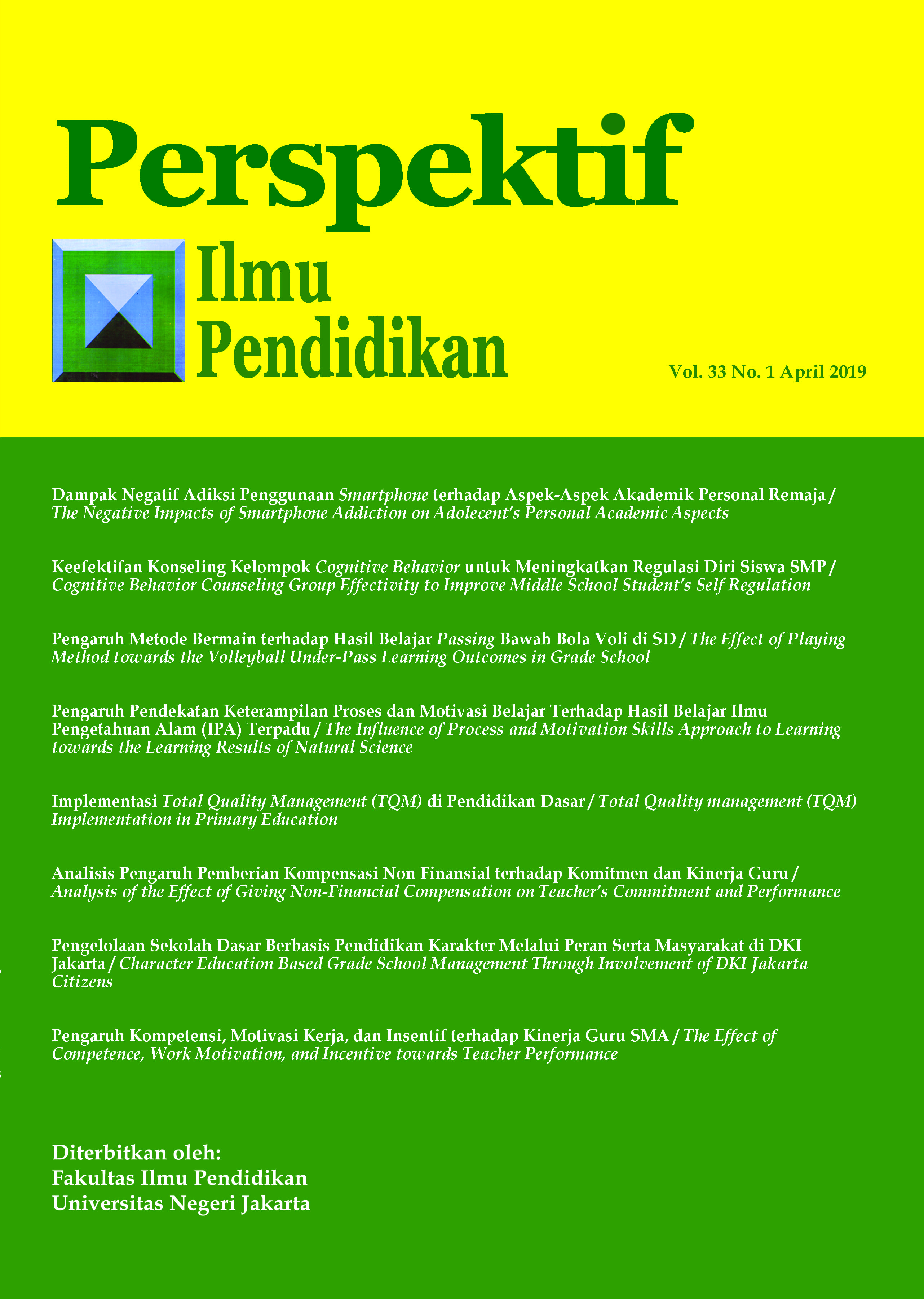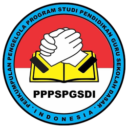KEEFEKTIFAN KONSELING KELOMPOK COGNITIVE BEHAVIOR UNTUK MENINGKATKAN REGULASI DIRI SISWA SMP
Research
DOI:
https://doi.org/10.21009/PIP.331.2Keywords:
Cognitive Behavior Group Counseling, Self Regulation, middle school studentsAbstract
Self regulation is a process of self-regulation to set a mind and feeling to achieve a goal to be achieved. Self regulation determines student success, because students who have self-regulation can plan, evaluate, and control themselves. This study aims to determine the effectiveness of cognitive behavior group counseling can improve self-regulation of junior high school students. This study, using an experimental design with the Nonequivalent Control Group Design design. The data normality test results show that the control group is not normally distributed where the Sig.Asymp is smaller than 0.05. Whereas for the experimental group is normally distributed, where Sig.Asymp is greater than 0.05. Then it is obtained a hypothesis test that is appropriate for the control group using Wilcoxon test and for the experimental group using paired samples t test. Wilcoxon test results showed Sig.Asymp (2-tailed) of 0.080> 0.05, meaning that without giving counseling the Cognitive behavior group in the control group was not effective in improving student self-regulation, while for the paired samples t test test results showed Sig.Asymp ( 2-tailed) of 0.003 <0.05 means that the counseling behavior of Cognitive behavior groups in the experimental group is effective in enhancing student self-regulation. The research was carried out starting from April 2018 to January 2019, which took place at SMP Islam Mbah Bolong Jombang. Based on the results of the research, researcher gives suggestions for: 1) Teachers of Counseling Guidance, can be used as a reference that Cognitive behavior group counseling services can improve student self-regulation, 2) For further research: can apply Cognitive behavior counseling and can use different techniques in group counseling services so that they will gain a broader insight
Downloads
Published
How to Cite
Issue
Section
License
Authors who publish with this Journal agree to the following terms:
- Author retain copyright and grant the journal right of first publication with the work simultaneously licensed under a creative commons attribution licensethat allow others to share the work within an acknowledgement of the work’s authorship and initial publication of this journal.
- Authors are able to enter into separate, additional contractual arrangementfor the non-exclusive distribution of the journal’s published version of the work (e.g. acknowledgement of its initial publication in this journal).
- Authors are permitted and encouraged to post their work online(e.g. in institutional repositories or on their websites) prior to and during the submission process, as it can lead to productive exchanges, as well as earlier and greater citation of published works.
-
Users/public use of this website will be licensed to CC BY-NC-SA Creative Commons Attribution-NonCommercial-ShareAlike 4.0 International License












